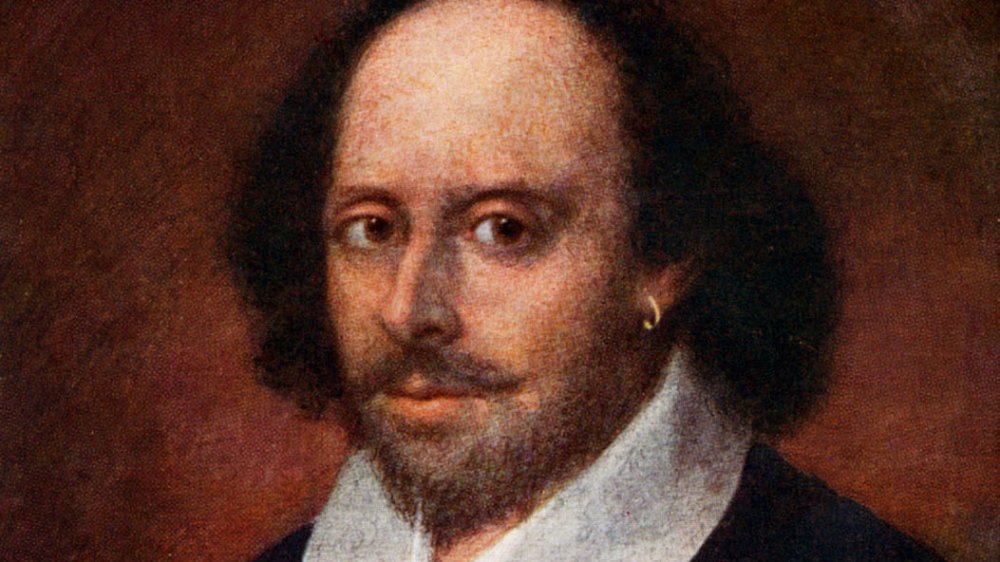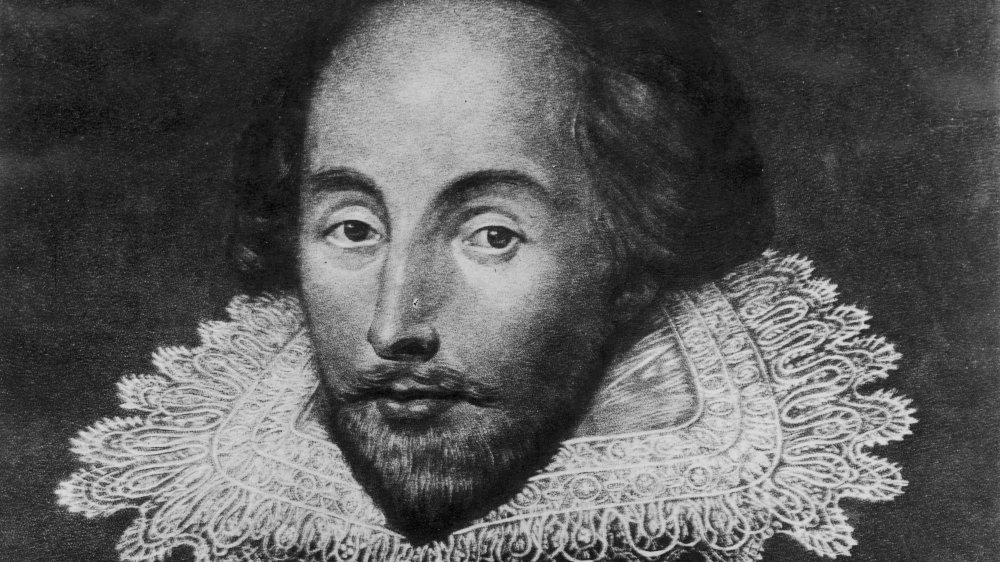Shakespeare May Never Have Actually Existed. Here's Why
There are two kinds of people in this world: those who divide everyone into two groups, and those who don't. Another two kinds: Those who love Shakespeare, and those who would rather binge watch Friends — again. Not that there's anything wrong with Friends. There's a lot wrong with Shakespeare. The person, not the works. We have this incredible body of work attributed to him — but not a lot of information directly linking the work with the individual. Whoever Shakespeare was.
There's no question a person named William Shakespeare existed. There's a baptismal record (1564) and a death record (1616, says Biography), as well as a grave (with a curse attached; thanks, Mental Floss) which he began to occupy when he died at age 52 (some say on his birthday, according to History). There are financial records and real estate transactions. Wife and children, per the BBC. Six examples of his signature, reports History Today (though none of them agree on the spelling, which, while annoying, was not unusual for the times).
What's suspiciously absent is direct, causal connection between the canon of work — the plays, the poetry — and the individual. There's also our human tendency to doubt the veracity of great achievement. All that work associated with the name Shakespeare: Encyclopedia Britannica attributes more than a million words to him; ThoughtCo lists 157 sonnets and 38 (or so) plays — histories, comedies, tragedies; William Shakespeare.net says he was responsible for writing some 350 poems.
Did Shakespeare do what Shakespeare did?
And that's where a lot of the kerfuffle arises. Even diehard fans claim that there's absolutely no way one individual could come up with so much brilliant and inventive writing in one relatively short lifetime. Doubters are many: Mark Twain, Sigmund Freud, and Walt Whitman among them, says PBS. Given what we actually know about the actual man — no great record of educational achievement, for instance — the argument goes that it's impossible that he wrote what he wrote when he wrote it. One of the main arguments is that the author of all of those works displays too much background knowledge — history, geography, politics, law, you-name-it. Lack of evidence hasn't stopped anybody from writing a biography of William, stringing together the few hard-and-fast facts from a profoundly sketchy historical record and weaving them with whole big dollops of speculation. There are hundreds of volumes devoted to the subject, many of them proposing one theory or another, trying to justify this extraordinary body of work being attributed to just one person.
And so the hunt begins. If you accept that it was impossible for the person we know as William Shakespeare to have written the body of work that's attributed to someone named William Shakespeare, then who did it? It quickly turns into a sort of literary treasure hunt with just as much speculation and connection of dots evidenced by most Shakespeare biographies, pro and con.
Was he a sham? Or simply a genius?
That "Shakespeare" thing was a ruse, for instance, for whatever reason. Maybe it was really a minor noble, who thought being a playwright was below his dignity, and so he hid behind the inkwell of a popular actor — someone like Francis Bacon, the Lord High Chancellor. (Because Bacon had time on his hands, apparently.) Perhaps it was a fellow playwright (or more than one), trying to diversify without flooding the market, so to speak — maybe Ben Jonson or Christopher Marlow. The Atlantic goes further: Shakespeare was actually the public persona of a woman, Emilia Bassano.
As PBS puts it so very well, there are two ways to come down: either Shakespeare the man was a fraud, or Shakespeare the author was an unparalleled genius — a miraculous genius.
Wherever the truth resides, and wherever he is today, maybe William Shakespeare is enjoying a good laugh. As he (or somebody) wrote, "mirth becomes a feast."


